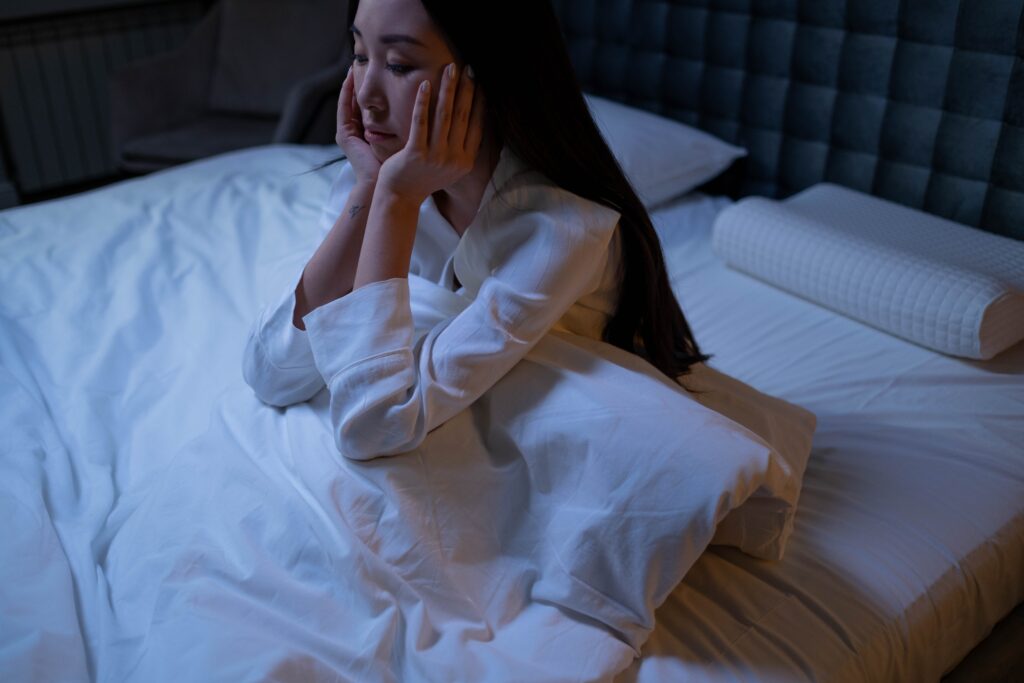Ever wonder how to reduce work stress? How to deal with burnout at work? or how to get over a bad day at work? If you go to work every day, you know the stress it can bring. Some days you feel motivated and excited to be on the job. On these days, your work gets recognized, you’re laughing with your favorite coworker, you have a tasty lunch, or you get to leave early. However, good days can feel far away sometimes at work. There will be days when work feels draining, and you reluctantly push yourself to get through. How to cope with these problems? This article will improve understanding and discuss tips of healthy coping.
What Could Cause Stress and a Bad Day at Work?
1. Issues with Coworkers

Depending on where you work, you may love or hate your coworkers. There are some places where coworkers become your best friend or even begin to feel like your second family. That is, these people make you feel supported, help you with tasks that need assistance, and create an overall welcoming environment.
It is definitely great to have coworkers like this! Unfortunately, some people do not have this same luxury. Sometimes people have horrible relationships with the people they work with or for. In other words, some coworkers will treat you with hostility and make you feel like you are a bother for asking questions or needing assistance. Other times, there is nothing overtly wrong with the relationship between you and your coworkers, but you all just don’t click. As a result, you may feel like you have no friends at work, lonely, and that your days are full of meaningless small talk and awkwardness.
2. Troubles with Your Boss
Theoretically speaking, a boss should be the person in the office, ensuring a happy and welcoming atmosphere is maintained. Unfortunately, this isn’t always the case; they might be at the head of your toxic work environment. Gallup’s Guide shows that one of the top reasons for an employee to leave the job is poor management and leadership.
In fact, some bosses can be quite toxic to deal with. They may micromanage you; you constantly feel like you are being watched under a lens by someone waiting to scold you for a mistake you made. Other times, bosses can make you feel like you don’t matter to them or the company. You’ll feel disposable and put up with their constant criticism or disappointment.
3. Difficult Customers, Clients, or Patients
Sometimes it’s not necessarily the place or people you work with; it could be the people you help or assist that make you feel terrible. Admittedly, some people treat workers horribly. People will be rude to servers, yell at customer service representatives, or just have overall negative attitudes that they spread to everyone they encounter that day. Even if you try your best to help someone, you may still receive rude behavior. Sure enough, this behavior makes you feel awful and ruins your day!
4. Mistakes Were Made
No matter how hard you try, mistakes are still inevitable. As a result, you may have a lousy work day because you learned you made a mistake. Without a doubt, mistakes can be embarrassing, especially if your other coworkers notice them. Your boss may be understanding and give you some helpful guidance, however other times they may get mad at you or call you into their office. Very often, this meeting can ruin your day!
5. All Work and No Play
We dedicate a lot of our lives to work. Obviously there will be times when you might miss your family or friends because work starts consuming your life. Do you remember the last time you had fun or went out? If you are a parent, you may get home late from work and miss eating dinner with your family or putting your kid to bed. Obviously this lack of time with your loved ones can make your day feel empty and frustrating.
Actually overwork is another major reason why employees quit their jobs. Constant overwork apparently leads to burnout and turnover. It could easily cause both physical and emotional exhaustion. That is, it does not only make a bad day, but a bad job.
Work Stress and Burnout Affects Mental Health
When too many bad days at work accumulate, they could easily turn to work stress and burnout. Work can become a huge source of stress in our lives. We can get stressed over many things in a professional setting. Typically these stressors can include:
- Deadlines and work piling up
- Career changes or thoughts of switching professions or jobs
- To-do lists that feel like they will never get done
- Lack of work-life balance
- The stress if being overworked, underpaid, or more
Actually constant stress over work can be a sign you have anxiety. According to MedlinePlus, stress is “a feeling of emotional or physical tension.” The NIMH states that anxiety usually lives within someone and is chronic. Stress usually goes away after the agitating experience or events pass, whereas someone with anxiety feels symptoms constantly. Work can cause a lot of stress in someone’s daily life.
Also, many people, unfortunately, struggle so much that they face burnout. The MayoClinic defines job burnout as work-related stress that exhausts people physically and emotionally. Researchers suggest that people with burnout face intense exhaustion, aversion to their job, and meaninglessness in their work. Without a doubt, job burnout takes the enjoyment someone once had for their career and squashes it in its tracks.
How to Cope with Work Stress and a Bad Day at Work
We spend most of our days during the week at our job and invest so much time into it. Since we dedicate so much of our lives at work, obviously it is disappointing when we have bad experiences. It feels like we put so much effort in only to get negative results and stress. How to get over a bad day then? Below are some tips:
1. Acknowledge Your Emotions
It is crucial to allow yourself to feel your emotions. When work stresses you out, you may feel overall down and distressed. Please don’t ignore your emotions; instead, embrace them. Why? Because keeping feelings bottled up can cause adverse effects on your life. When you are sad, having a good cry can help to let out your emotions.
To produce more cathartic experiences, you can listen to sad songs, watch emotional movies, or try journaling. Journaling can help you explore how you feel and get to the root of where your emotions are stemming from.
2. Practice Self-Talk
Usually you are more aware of your emotions, rather than what triggered such emotions. For example, you could feel upset and stay frustrated for a long time. Why? Simply because you may have negative self-talk due to work stress. Such negative self-talk could color your thinking in may ways and consequently affect your emotions and behaviors. How to change negative self-talk to a rational one then?
- Slow down and visualize a STOP sign in front of you. There are different ways to slow yourself down
- ~ Take deep breaths;
- ~ Tap your shoulders or laps to calm yourself down;
- ~ Walk to a different room or outside;
- ~ Wash your hands for extended time;
- Ask yourself, “What’s going on?” “What when through my mind?”
- Once you figured out those negative thoughts, ask yourself, “If this happens to my best friend, what would I say to them?” You probably would not say “I bet your boss hates you”, or “I can never do anything right because I am just stupid”.
- Change to rational self-talk. Rational self-talk does not have to be positive, it can be neutral as long as it is not emotional. For instance, “I can never do anything right” may be changed to “I made a mistake this time. but this helps me to learn my lesson to improve next time.”
3. Practice Self-Care

When you have bad days, it is essential to practice self-care. For example, when you weren’t treated kindly, maybe by a rude customer or angry boss, you still need to ensure you are treating yourself kindly. In fact, self-care can fall under many categories; you must do what’s best for you.
Self-care options can include:
- Engaging in activities that make you happy, like practicing your hobbies or interests
- Doing things that help you relax and recharge
- Getting enough sleep, taking a nap, showering, doing skincare
- Taking care of your body by feeding it with nurturing food or drinking enough water
- Getting your body moving and active
-
Taking a social media to cleanse and logging off for the night
As a matter of fact, exercising after work can help you feel more relieved if you work remotely or at an office desk all day. Your body may be stiff, and getting it moving through exercise can help you release some of that tension.
4. Vent to Friends and Loved Ones
In tough times, you can benefit from the support of your loved ones around us. After a tough time at work, don’t be afraid to voice your concerns to a loved one. Truth be told, holding in your emotions all to yourself can feel more overwhelming. Instead, allow yourself to open up to others and speak about what you are going through.
Specifically, ask your friend if they can help you. Talk about your issues with them and be open to any advice they may offer you. When you can vent to more people you trust, it actually can help you to reduce stress significantly. The rationale behind it is called desensitization. By repeating your story, the intensity of your emotions can decrease and you could feel better.
5. Increase Self-Compassion
As mentioned before, making mistakes at work can feel embarrassing or upsetting. You may feel discouraged and unmotivated to keep trying. Don’t let your mistakes define you; we all make mistakes, and that’s okay! We are human after all.
Treat yourself with compassion and forgiveness. Remind yourself that mistakes happen, and they aren’t all bad. Indeed, mistakes help us grow, learn, and become better, wiser people. If we make a mistake at work, it can help us know better for next time.
6. Create Boundaries and Work-Life Balance
It can be intimidating to set boundaries at work, but they are essential. We all need a work-life balance. That is, it is not healthy to work all days of the week and never have time to relax, have fun, and see our loved ones. You can start with little steps each day. This can include:
- Logging off from your computer or work platform at a set time each day
- Decreasing your screen time
- Not checking emails after a certain time or on the weekend
- Saying “no” more often and not people-pleasing as much
7. Block out Environmental Stressors
As mentioned before, coworkers and supervisors could very well be the reason why you have a bad day at work. Maybe they are having a bad day themselves and spread the mood to you, or maybe their gossips, interactions, and relationships make the work environment more like a dysfunctional family. Whatever it is, you can choose to block out such environmental stressors. Specifically, you can
- close your office door if possible;
- go outside to get some fresh air;
- take a break and leave your desk if you need to;
- plug in your headphones, or
- get “busy” with phone calls, projects, or anything that can help you to manage those stressors.
8. End the Day with a Clean Slate After a Bad Day at Work
As we all know, it is hard not to bring work stress back home and allow your mood to affect your family life. Since the pandemic started, more people work from home. As convenient as it is, this may easily blur the boundary between work and life. In other words, work may continue to affect at the end of the day because your office and living room or even bedroom are literally in the same place. How to end the day with a clean slate then? Here are a few tips:
- Write down a list of tasks that you need to accomplish at work tomorrow. Leave it on your desk and wait till tomorrow to handle;
- Make a conscious decision to leave work brain at work and not to bring work related issues back home;
- Wash your hands before leaving work. Remind yourself to wash away everything frustrating at work down the sink and go home with a clean mind to your family;
- Change your clothes after work. Tell yourself this changes to your family life;
- Remind yourself that you work to live, not live to work.
9. Consider Therapy for Work Stress or Burnout

Therapy can help you with any work struggle/general life struggle you are facing! A therapist can give you the tools to handle work stress better, implement mindfulness techniques, and eliminate negative thoughts from your bad days.
If you notice that you feel more stress and it is lingering, you may have anxiety. If you find yourself experiencing endless stress every day, this is not healthy. Talking to a mental health professional can help how to cope with work stress. You will find ways to cope and deal with stressors in your life while still taking care of yourself and living a healthier life.
We offer support for all of the services mentioned above. You don’t have to face your worries alone – learn how to cope with work stress now! Call to set up a consultation today!
Content Creator, Victoria Gallo; Reviewed by Dr. June Cao







